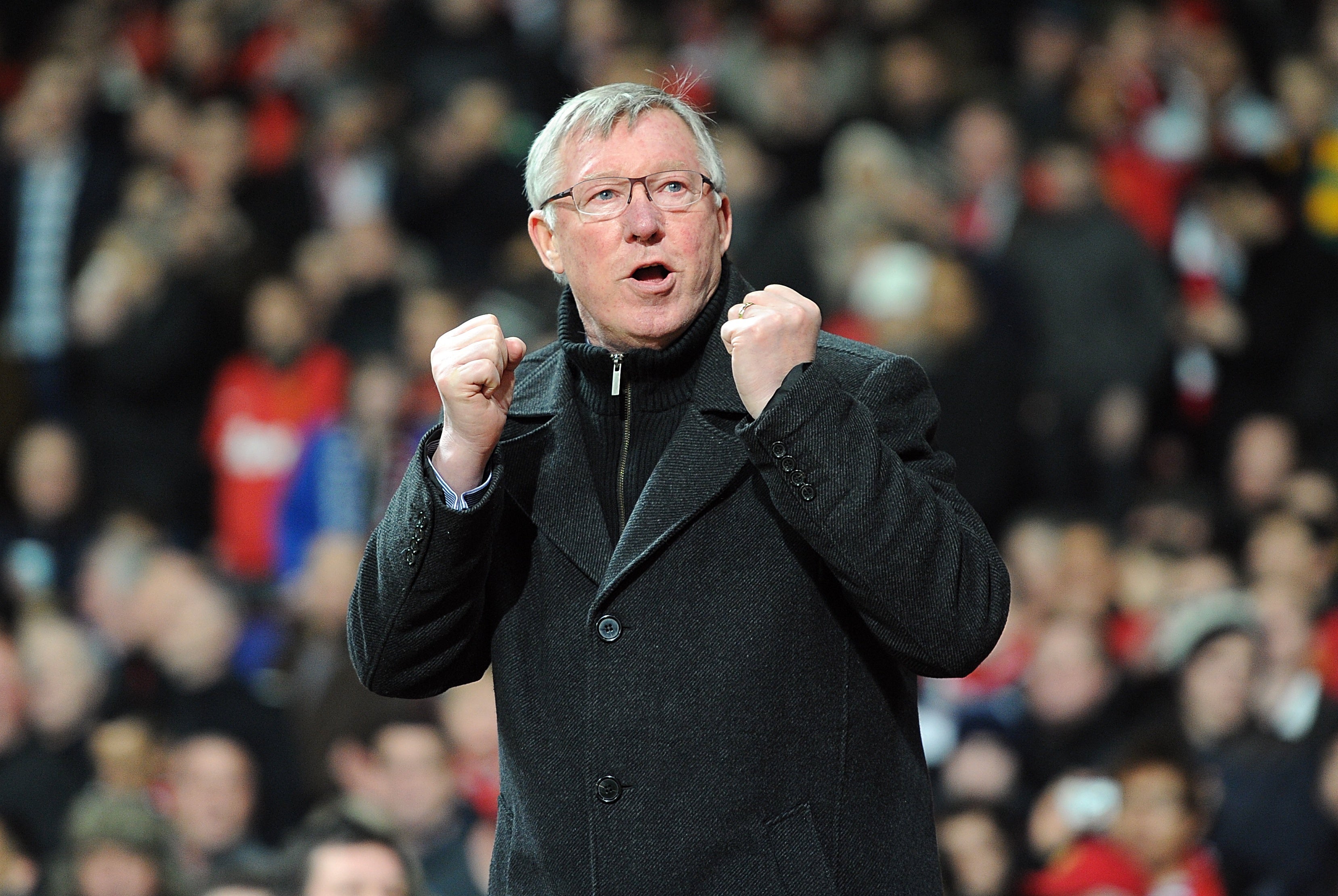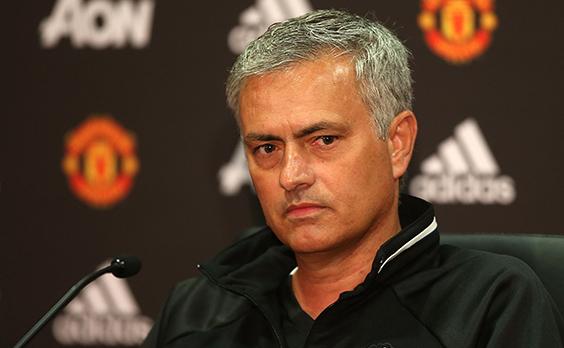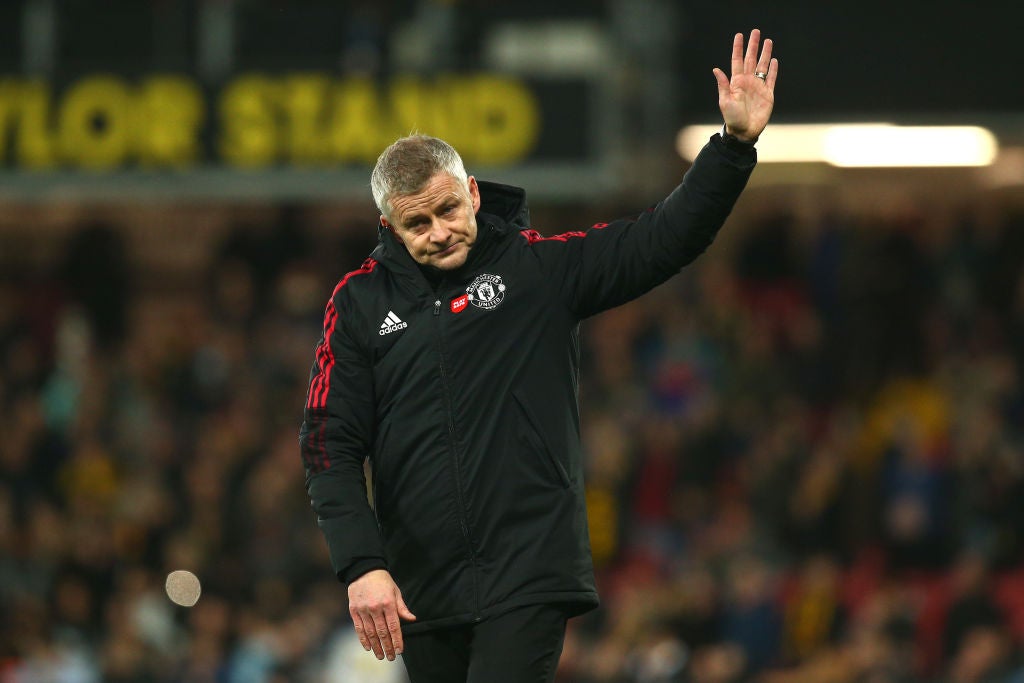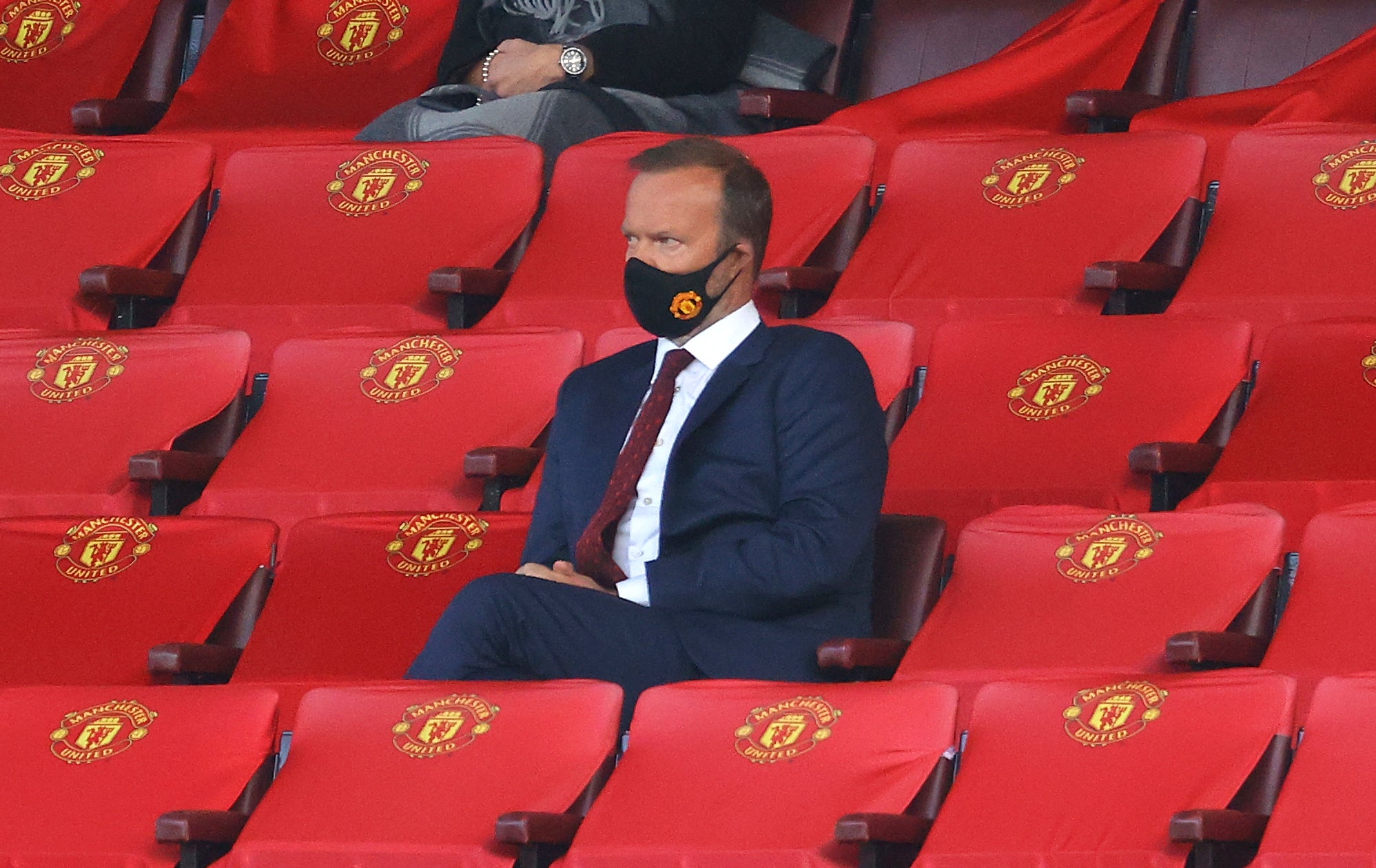Ed Woodward’s time at Manchester United ends as it began – with club still seeking next Sir Alex Ferguson
Woodward will be replaced as executive vice-chairman by Richard Arnold

Your support helps us to tell the story
From reproductive rights to climate change to Big Tech, The Independent is on the ground when the story is developing. Whether it's investigating the financials of Elon Musk's pro-Trump PAC or producing our latest documentary, 'The A Word', which shines a light on the American women fighting for reproductive rights, we know how important it is to parse out the facts from the messaging.
At such a critical moment in US history, we need reporters on the ground. Your donation allows us to keep sending journalists to speak to both sides of the story.
The Independent is trusted by Americans across the entire political spectrum. And unlike many other quality news outlets, we choose not to lock Americans out of our reporting and analysis with paywalls. We believe quality journalism should be available to everyone, paid for by those who can afford it.
Your support makes all the difference.In one of the many challenging periods early in his Old Trafford role, Ed Woodward canvassed various chief executives and chairmen from major European clubs on how important they thought the role of the manager was. He wanted to know what they thought the ratio was between the influence of the playing squad and the coach.
Most went close to 40 or 50 per cent for the manager. Real Madrid, to Woodward’s slight amusement, went to just 10 per cent.
The approach shows the studiousness and diligence that got Woodward his role as executive vice-chairman at Manchester United, and often made them a shining example in terms of pure business – capable of financially competing in a world of state clubs and oligarchs.
It also shows the lack of instinct for pure football that, put bluntly, occasionally made them a laughing stock among top clubs. Woodward was essentially broadcasting his lack of expertise.
This remains the only possible assessment of his seven-and-a-half years in the role now it comes to an end, which is part of the problem. There were two sides to it.
The business side could broadly be considered positively, especially the genuinely human element of the club’s reaction to the pandemic and the refusal to furlough staff or stop paying casuals. That is important.
It’s just the football side naturally remains by far the most important side to an actual football club, and that was a failure. It is understood Woodward himself accepts this. There was even a feeling the club was too big for him, whatever about the role.
The story about canvassing Europe for opinions is so instructive, in part because it shows how beholden Woodward was to the figure who is supposed to know more about football than anyone else at a club: the manager.

His time ends as it began, with United still searching for another Sir Alex Ferguson; still in search of a football identity; a culture. Woodward is known to accept that all the talk of reboots and “climbing the mountain” are now meaningless.
It should be stressed that he was dealt an appalling hand in having to immediately deal with Ferguson’s retirement. The scale of this really shouldn’t be underplayed. It was one of the most significant moments in football history, and Woodward continues to describe it – often with an exclamation – as the biggest moment of all at United.
He has often found himself wondering what it would have been like if he even got a year under Ferguson.
It’s still fair to wonder about so many decisions since then, especially years after the Scottish great left.
It isn’t too much of a stretch to argue that the football team is still in much the same place as it was in every period between managers, with no real progress. They’re no closer to a title. There is disharmony in the squad. There remain searching questions about its exact quality.
It still looks like a squad built to many different models. They have constantly been seeking to improve recruitment, to their credit, but the current state of the personnel shows it needs more work.
It needs looking beyond any manager, ironically.
This was one of Woodward’s main failings, which made his lack of instinct for the game – he is known to have been a rugby man – so crucial.
He always fully bought into whatever manager he employed. That would be fine if they were of a similar ideology or outlook and the club had some guiding football principles, but they weren’t. They were all very different and failed in different ways.
It was once put to Woodward why he didn’t try and replicate the best in the world at Manchester City and Liverpool and seek to articulate an overall football ideology from which everything flowed. He said that would be too rigid.
United instead found themselves repeatedly restricted by decisions, usually made at the wrong time.
Ultimately, Woodward never got the biggest call right.

Two of the permanent managers were past their best, the other two were never anywhere close to the best.
The ill-fitting Jose Mourinho might have made sense in 2013 if United were to ever appoint him at all, and he certainly should have gone before Christmas 2018.
As disruptive as the Portuguese was, though, Woodward found Louis van Gaal an even bigger challenge. The truth was he couldn’t really handle him. It conditioned so much that was to come, ensuring every single decision was mostly a response to the last decision rather than one guided by greater thinking.
That reached its nadir with Ole Gunnar Solskjaer, who it feels really defines the whole Woodward era for the way United ultimately invested in him. He was also such a soft figure compared to Van Gaal and Mourinho. This wasn’t so much the last throw of the dice as the inevitable point the club had been building up to.
An institution whose main interest seemed to be monetising its history lost sight of the way the actual football was going, and put far too much faith in a club legend just ill-equipped for the reality of the job.
Solskjaer’s first few months were understandably intoxicating, especially the win against Paris Saint-German in the French capital, but the overriding sense was still that it was better to wait on a permanent decision until that 2018/19 season ended. Woodward instead just went with the wave and gave the Norwegian the permanent job that March, on the belief that “something special” was happening. What happened was that United immediately tanked as the momentum and the luck ran out, compounding a series of problems for a manager that probably didn’t have the skills to deal with them.
Woodward then refused to sack Solskjaer at various points when it made sense and when there were better options available, all on the mistaken belief – no, insistence – that he could be another Ferguson. It was again that lack of football knowledge, and surrounding expertise, that became too influential.

The mere image of Woodward and Solskjaer being primarily responsible for the running of arguably the biggest club in the world now seems baffling, and sufficient explanation for where they are now.
Some figures in football have told The Independent that this influenced how United did business, too. While most actually speak well of Woodward personally, more than a few sources say they sometimes got the sense that he and Matt Judge considered themselves to be superior negotiators than anyone else in football. The issue, the sources say, was they didn’t understand negotiating in football, and the various issues such as time constraints. There are frequent stories of how they would carry out this approach of making an offer for a target but then going quiet to the selling club for weeks on end, as if to feign disinterest. That is fine if no one else wants the player. “Try it with Erling Haaland,” one source laughed. Many believe it cost them some top names, or better-value deals.
A similar approach might have cost them managers, too.
The reported line to Jurgen Klopp about how Woodward tried to sell the vision of an “adult version of Disneyland” now almost serves to sum it all up, although not in the way intended. This was not something a serious football person was all that captivated by.
It felt like it came from outside the game, as was the case with much of Woodward’s thinking. It probably says even more about how the Glazer owners saw the club.
There is then the insulting debacle of the Super League.
Woodward is telling people that this is the reason he resigned, that he just couldn’t stomach it, especially after talking to friends who supported West Ham United.
That is noble. It still leaves questions.

Although both parties denied the Super League was discussed, why, as The Independent exclusively revealed at the time, was Woodward in Downing Street to meet the Number 10 chief of staff Dan Rosenfield – and, briefly, the prime minister – just days before the launch? Why did news of his resignation only come after it became clear the project was a failure? Why did Uefa president Aleksander Ceferin so specifically name Woodward as a “snake” in that press conference the morning after the launch?
That would still be a hugely unfair way to sum up Woodward after his seven-and-a-half years in the job, particularly given the way most speak of him as a person. He was actually hard not to like on meeting him.
This explained much of his business success.
As for the football side, well, maybe it’s better to frame it in terms of the sort of question that Woodward put to so many peers.
The playing side is ultimately far more important than the business in terms of perception and performance.
As Woodward himself now privately concedes, it is very hard to say it was a success.
United are just left with a lot of the same issues, if a lot of money.
Join our commenting forum
Join thought-provoking conversations, follow other Independent readers and see their replies
0Comments